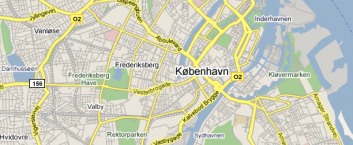Experiential Learning for Climate Change and Policy Action
A Unique Integration of Theory and Practice
The course is a globally integrated class, entailing a program whose academic excursions are embedded in the curriculum of the course and provided the support and excellence of the Global Education staff at Dickinson College. For more information visit the Office of Global Education at Dickinson College.
From Kyoto to Copenhagen, Negotiating the Future of the Planet
National governments that are parties to the United Nations Framework Convention on Climate Change (UNFCCC) are engaged in intensive negotiations leading up to the 15th Conference of the Parties (COP-15) to the UNFCCC, which will be held in Copenhagen in December 2009. The intended outcome of COP-15 is a new climate change treaty to replace the Kyoto Protocol, which would represent a key turning point for global environmental governance. Students in the course will function as a research team, the Dickinson K2C Research Team, to investigate the objectives of selected parties in the negotiations, the positions of these parties on key issues, and factors that shape their objectives and positions.
From Kyoto to Copenhagen, Negotiating the Future of the Planet
National governments that are parties to the United Nations Framework Convention on Climate Change (UNFCCC) are engaged in intensive negotiations leading up to the 15th Conference of the Parties (COP-15) to the UNFCCC, which will be held in Copenhagen in December 2009. The intended outcome of COP-15 is a new climate change treaty to replace the Kyoto Protocol, which would represent a key turning point for global environmental governance. Students in the course will function as a research team, the Dickinson K2C Research Team, to investigate the objectives of selected parties in the negotiations, the positions of these parties on key issues, and factors that shape their objectives and positions.
Two Classes in One
The course is structured as a one-credit globally integrated program that will span fall and spring semesters and will feature attendance of COP-15 in Copenhagen. In the fall term, members of the K2C Research Team will prepare for the team research project by attaining general literacy about climate change and developing expert knowledge about the international climate negotiations – the process, key issues, objectives of selected parties, their positions on key issues, and the different/shared circumstances that influence their positions. The team will draw on the newly acquired knowledge to develop research questions and a research plan for fieldwork in Copenhagen. Team members will receive instruction and experience in qualitative research methods, interviewing techniques, and technical skills for using video and audio equipment, as well as blogging and social media technologies for communicating about the negotiations and the research project.
In December, while attending COP-15, the K2C Research Team will meet with representatives of government delegations, UN agencies, and civil society, business, and scientific organizations, attend official negotiating sessions, and attend panel sessions and other events that are associated with the conference. The team will conduct interviews with parties to the negotiations, videotape and audiotape the interviews, and administer surveys to participants at the conference. Intensive public outreach via podcasts, Twitter, short videos, and blogging, and press releases will provide open access to our educational experience.
In spring semester, the research team will reflect on its observations of the conference, analyze the interview and survey data, synthesize findings, and communicate results of the research through a conference paper, project website, and video documentary.
In December, while attending COP-15, the K2C Research Team will meet with representatives of government delegations, UN agencies, and civil society, business, and scientific organizations, attend official negotiating sessions, and attend panel sessions and other events that are associated with the conference. The team will conduct interviews with parties to the negotiations, videotape and audiotape the interviews, and administer surveys to participants at the conference. Intensive public outreach via podcasts, Twitter, short videos, and blogging, and press releases will provide open access to our educational experience.
In spring semester, the research team will reflect on its observations of the conference, analyze the interview and survey data, synthesize findings, and communicate results of the research through a conference paper, project website, and video documentary.

